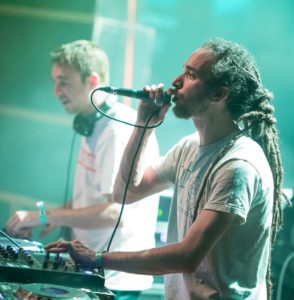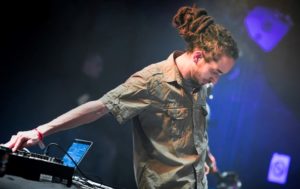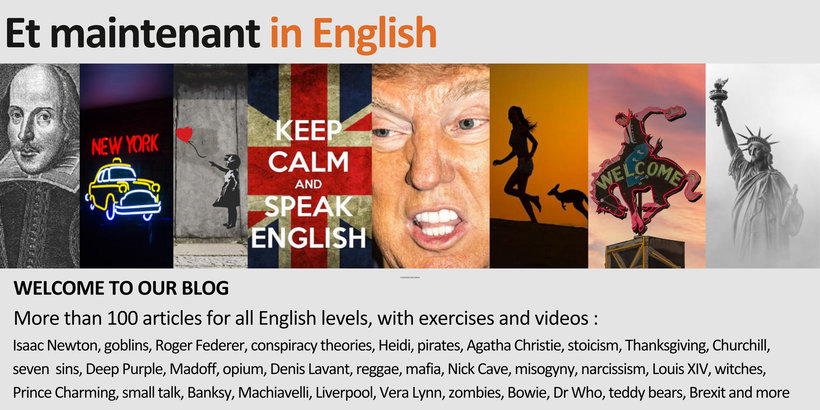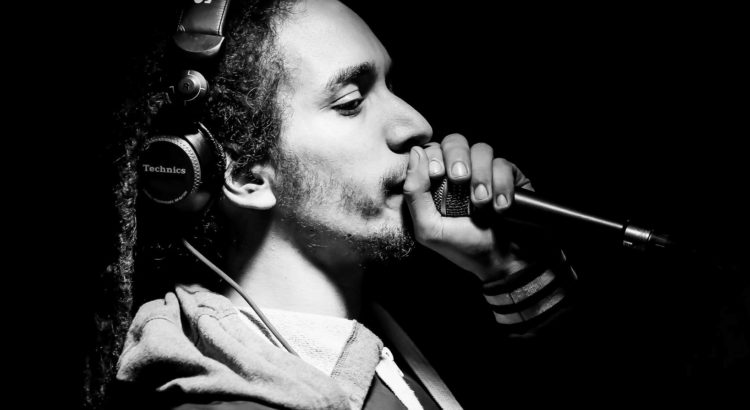Level B2 and above
Sometimes in life, if you are lucky, a door opens and instinctively you know this is the way. Call it what you like, an epiphany or a calling. The big question is, are you going to follow this path? Are you a believer?
Nicolas (Nico) Meury’s calling was loud and clear, and it had an island beat. He was just 11 years old, a Swiss schoolboy living in Commugny.
By Garry Littman, director at The Language House
His older brother Stéphane was a headbanger, a fan of heavy metal bands like Slipknot, Slayer and NOFX. One day he played a song that opened the door for little brother.
It was Bob Marley. Reggae. So, what did an 11-year-old boy hear?
“Suffering and love,” Nico replied, in that order. “It rang a bell, deep inside me. There was truth to it.”
A remarkable response for a schoolboy barely out of short pants. And the journey began.
Today, Nico aged 28, is the CEO of independent Geneva recording studio and label, Evidence Music and is also the founder and partner in one of Europe’s hardest working reggae sound systems, Little Lion Sound. He is a rising and respected player and influencer in world music, especially reggae and dancehall.
Geneva and Evidence Music studio have become a European stopover for Jamaican artists.
Evidence Music videos
have attracted 34 million views
From their no-name, shopfront studio in Les Grottes in Geneva, Nico and his partners and collaborators have recorded, produced and promoted some of the biggest names in reggae and dancehall such as Sizzla, Anthony B, Shaggy, Luciano, Busy Signal, Brother Culture, Million Stylez, General Levy, Vershon, Johnny Osbourne, Capleton, and the late Wayne Smith.
The Evidence Music YouTube channel which showcases the body of their work with international artists, in the form of music videos, has attracted 34 million views.
In 2017, Evidence Music recorded and produced the album Ego by Danitsa, who went on to win ‘Best Music Act in Swiss-Romande’ at the Swiss Music Awards in 2018.
This week has been big. Lion-size. Evidence Music with Nico at the helm, signed an international deal for Danitsa’s new album with Island Records, the fabled label of Bob Marley, U2, Amy Winehouse and The Clash. It was year-long negotiation and Island Records agreed to let the Geneva independent label keep ownership of the master record and remain producer. Island Records will use its international reach to market and sell Danitsa and her music around the world.
The album was recorded in the Red Bull Music Studio in Los Angeles and Evidence Music studios in Geneva.

Danitsa (centre) wins Best Act Romandie and Nico (second on the left) at the Swiss Music Awards in 2018.
Danitsa: Captain
Behind his rasta dreadlocks, his charming Jamaican-English patois and chill attitude is an astute businessman and deal maker who has navigated the fast evolving and merciless music landscape of the last two decades. Music is a passion, that often doesn’t often feed the cat, let alone fill the master’s belly.
The real dope is that Evidence Records is a trio of go-getters with a business plan and a strong work ethic.
His partners in Evidence Music are Derrick Sound (also a sound system); two brothers Nicolas and Etienne, who have day jobs as an economist and lawyer respectively.
His partner in Little Lion Sound is an Australian-Swiss friend from childhood and university student Jannali ‘Selecta’ Littman (who shares both the same name and genes as the writer of this article).

Little Lion Sound
But we’re getting ahead of ourselves.
The young Nico, aged 12, managed to convince his parents and his high school in Versoix that he should do his work experience project at Reggae Fever, a record shop in Les Grottes, at the time, one of the largest distributors of reggae in Europe.
He was a roots and culture sponge. His one week work experience stint lasted two years. He could be found in the record shop every day after school between 5 and 8pm.
“They couldn’t pay me. Each shift I worked I would receive two 45s (vinyl singles). When I stopped I had about 400 to 500 reggae singles.
Nico celebrated the skeleton in the family closet. The Little Lion had a little of his own island roots and culture.
“I started digging into the music and culture and always in the back of my mind I was thinking, how can I make this music work for me. I discovered sound systems and DJs who would come into the shop and buys lots for records. But I was too young.”
Around this time Nico began to fathom a long-hidden family secret. His father was born on the French island of Reunion. Little was said about his childhood or Nico’s grandmother. When Nico was 10, he discovered his grandmother was a native of Reunion. Nico celebrated the skeleton in the family closet. The Little Lion had a little of his own island roots and culture.
“It was hard for my parents. I know I gave them more than a fair share of sleepless nights.”
“It was hard for my parents. My father is a banker and my mother a logopedist, and clearly, they wanted me to be an engineer or something similar. They saw my love of reggae as dangerous path, but as the years went by, they realised it offered me extraordinary life experience. Thankfully, I was good at school. But I know I gave them more than a fair share of sleepless nights.
“In some ways my father was quite supportive. He took me to Montreux to see Prince Buster, a pioneer of ska music, which predates reggae. He had a sound system and he sang. He was extraordinary. I could see a future.
Prince Buster: One Step Beyond
“I had the music and I wanted to play. At the time there was a web radio station called Reggae Vibes based in France. The Saturday night time slot from 8 to 10pm was free. No one wanted this slot because all the best-known reggae sounds were all getting ready to play live for the night.
“I sent a mixed tape from a Geneva DJ to the station and said it was mine. They wrote back: ‘Great. We’re ready to go.’ They didn’t know I was a 13 year old Geneva schoolboy.
“With the help a band of friends the show kicked off with a simple turntable, a CD player and amplifier and many sleepless nights, twisted cables and bad connections. No mixer and of course, no microphone.”
If anyone heard the sweet tones of a 13-year-old, he knew his cover would be blown.
The show started to get picked up and people started to talk about the Little Lion from Geneva. From the record shop he had access to the latest international releases from the giant French label Irie Ites.
I couldn’t tell my parents. I was only 13. I would pedal off on Friday night and Saturday night on my bicycle with my cache of records and ride the 45 minutes into Geneva and play the night.
I’d then just wait around until six or seven in the morning and cycle home, exhausted, but happy.
The next step was DJ-ing. At 13 he started working regularly as a pre-show or warm-up DJ around Geneva.
“I couldn’t tell my parents. I told them I was sleeping at a friend’s place and I would pedal off on Friday night and Saturday night on my bicycle with my cache of records and ride the 45 minutes into Geneva and play the night. I’d then just wait around until six or seven in the morning and cycle home, exhausted, but happy.
“My father surprised me one night. He found a picture of me on concert flyer. He pulled up in his car in front of the stage at 1am while I was DJ-ing and hauled me off the stage and took me home.
“It was crazy, but we managed to negotiate an agreement that my brother would come with me when I played in the future.”

Credit: On The Roots
The Little Lion needed his own sound system (powerful speaker system) and Nico announced to his high school that his personal project for the year would be building a mega 12-kilowatt sound system. He negotiated a deal (the first of many); the school would pay for the materials, he would build it, his work would be judged on its acoustic merits by sound engineers and both he and the school would have use of the sound system for three years and after this period it would become the property of Little Lion Sound.
Shortly after, Jannali became the second Little Lion. They were both 16. Jannali ‘Selecta’ keeps the music pumping and Nico is the MC (master of ceremony) who, with microphone in hand, whips up the crowd.
Little Lion Sound has now played hundreds of gigs in Australia, the USA, and throughout Europe. Their YourTube channel is filled with video dubplates, one-off records that celebrate their sound, such as this one sung by a young Danitsa back in 2010 and another by Brother Culture.
Brother Culture
This dubplate below by Antony B has received more than one million views.
Their dubplate videos have had more than 6.6 million views.
During an English language course in the USA Nico met up with Wayne Smith the New York based Jamaican reggae and dancehall musician best known for his 1985 hit Under Mi Sleng Teng, widely regarded as the track which initiated the digital era of reggae.
After English lessons he could be found with the reggae legend. It was there he realised that the future was a studio, recording and producing music.
“It was a fantastic experience and we became great friends. He was a pioneer and he was my mentor. We later produced his music. Here was this legend living in a tiny studio that was also his recording studio and home for his daughter and girlfriend. You never knew who would arrive. Shabba Ranks, Johnny Osbourne and Ranking Joe, they all came through the door.”
In 2010, the modest Geneva studio opened and business was brisk. Nico charged just 20 chfs an hour and soon had more work that he could cope with and as well as a steep learning curve.
Around this time, he began organising European tours for reggae artists. He looked after the flights, booking, accommodation, equipment and Little Lion Sound opened and closed the concerts.
Two year ago, Evidence Music and Little Lion Lion Sound flew to Jamaica with a suitcase full of beats. They hired a house with a recording studio and over a over a frenetic two-week period recorded the album Kingston Journey, an eclectic mix of Jamaican artists including Easah, Jae Prnyse and Natel.
One of the album gems is Capleton’s In the Game (314,00 views)
Interview:
Dancehall has overtaken reggae as the most popular form of Jamaican music. Where does it come from?
This is true in Jamaica and around the world today. The mainstream media and international labels lost interest in roots reggae at the end of the 90s. Dancehall is more electronic and up tempo. The lyrics are more ‘party’ rather than a conscious and strong message associated with roots reggae.
What’s closest to your heart: Dancehall or reggae?
Reggae. Definitely. Roots reggae songs are profound and timeless. They carry a universal message. Dancehall is more about having a good time. There is, of course, nothing wrong with that.
Has international exposure diluted the spiritual meaning of Jamaican music?
In Jamaica there is still a big movement to use music to carry a spiritual and political message, but it’s easier for the big labels to push much more neutral songs.
Has the music itself been superseded by the importance or marketing, social networks and videos?
Yes, definitely. Now without a video, social network and good marketing you could have the greatest music ever, but no-one would have access to it. It’s a necessary evil. It’s 90 percent of the success. But it also opens doors for musicians to succeed and find an audience. It has ‘democratised’ music. But the competition is hard. Before, if you didn’t have a signature with a big label it was almost impossible to be heard.
You’ve recently acquired a catalogue of 1,000 reggae tracks. They have already been released. What will do with them?
We will setup a strategy to rebrand, remaster and re-release many of the songs. Most of them were vinyl releases. We will adapt to them to the digital times of today such as streaming, downloading and, of course, videos.
Switzerland has strong reggae connections. Why?
In the 90s people from the Commonwealth countries (including Jamaica) could fly directly from the UK to Switzerland. Switzerland and Holland were the only non-visa accessible European countries. Jamaican communities started to grow in Switzerland and artists started to come for shows and Swiss people started to get involved.
Much is said today about cultural appropriation when members of a dominant culture copy or profit from disadvantaged minority cultures. As a Swiss man, heavily invested in Jamaican culture, do you ever question the legitimacy of your work?
From the beginning when I started and still now, I tend to question myself. What we are trying to do is not to copy or exploit Jamaican culture, but blend our two cultures to create something new that might resonate with a wider audience. It is something everyone can benefit from. But yes, with Black Lives Matter there is a movement to keep reggae music within the Jamaican community. Ultimately we have to earn the respect and trust of the artists to collaborate in the long term. I think we are doing that.
Some people may see your rasta hair and love of reggae and imagine that you consume marijuana for breakfast, lunch and dinner? Of course, that’s true I imagine.
I’m the total opposite of what people expect when they see me. I work about 10 hours per day. I run a company and I don’t smoke weed. Pretty boring, in fact.
Are the larger labels starting to show interest in Evidence Music? Have you had any interesting offers as yet?
Within the musical community we are considered a rising label. We’ve done that in just seven years. People from the industry are definitely showing interest. We’ve had a few interesting meetings, but for the moment, the plan is to keep the label growing and independent.
Some artists have violent homophobic lyrics in their music, such as Beenie Man, Capleton and Sizzla. Evidence Music has worked with these artists. What do you think of campaigns like Stop Murder Music which opposes Caribbean artists that produce music with lyrics alleged to glorify murder of homosexual men? Where does Evidence Music stand on the content of lyrics?
Today’s artists have changed. There are no more homophobic lyrics. The US and Europe has banned travel to musicians who have homophobic lyrics. But is difficult to change views. Jamaican reggae has been targeted by campaigners as homophobic music, sometimes unfairly. We definitely ban these kind of lyrics. Nowadays artists know that this a no-go zone for international success.
Nico’s selection:
Five of the most influential songs in the history of reggae
My Boy Lollipop – Millie Small 1964
First international hit for Jamaica, with Millie Small in 1964. This is ska! The song paved the way for Chris Blackwell’s international success and Island Records selling millions of copies.
54-46 – Toots & The Maytals : 1968
Toots died in September 2020. He was one of the pioneers of reggae and ska. He invented the name reggae. 54-46 was his jail number when he was arrested for marijuana possession, he turn it into a hit record.
Marcus Garvey – Burning Spear 1975
One of my favorite records ! Burning Spear singing about the legendary Jamaican black nationalist and pan-Africanist philosopher Marcus Garvey.
Welcome To Jamrock – Damian Marley – 2005
One of my favorite Jamaican tunes sung by the youngest son of Bob Marley and arranged by Stephen Marley. It reflects Jamaican life, and expresses the duality between uptown and downtown Jamaica. The original instrumental was from Ini Kamoze with World A Reggae.
Lockdown – Koffee 2020
My favorite Jamaican tune of the year with Koffee who won a Grammy award last year at just 19 years old. A question about life post-corona and what we will be tomorrow. A sweet twist between dancehall and Afrobeat.
Glossary:
Reggae began in Jamaica in the late 60s. It grew out of ska music. A 1968 single by Toots and the Maytals, Do the Reggay was the first popular song to use the word “reggae” and introduced it to a global audience. Reggae is deeply linked to Rastafari, an Afrocentric religion which developed in Jamaica in the 1930s, aimed at promoting Pan Africanism.
Roots reggae is concerned with spiritual and social issues. The golden era of roots reggae was the 70s. Bob Marley is the most celebrated roots artist. Others include Peter Tosh, Burning Spear, Bunny Wailer and The Gladiators.
Ska (fast reggae) originated again in Jamaica in the late 50s as a mix of Caribbean mento and calypso with American jazz and rhythm and blues. In the 1960s ska was popular with the British mods and skinheads and the punk movement.
Dancehall originated from Jamaican reggae and became internationally popular in the 80s as music to dance to. It can be traced back to Jamaican DJs with sound systems who played in dance halls around the country in the 50s.


